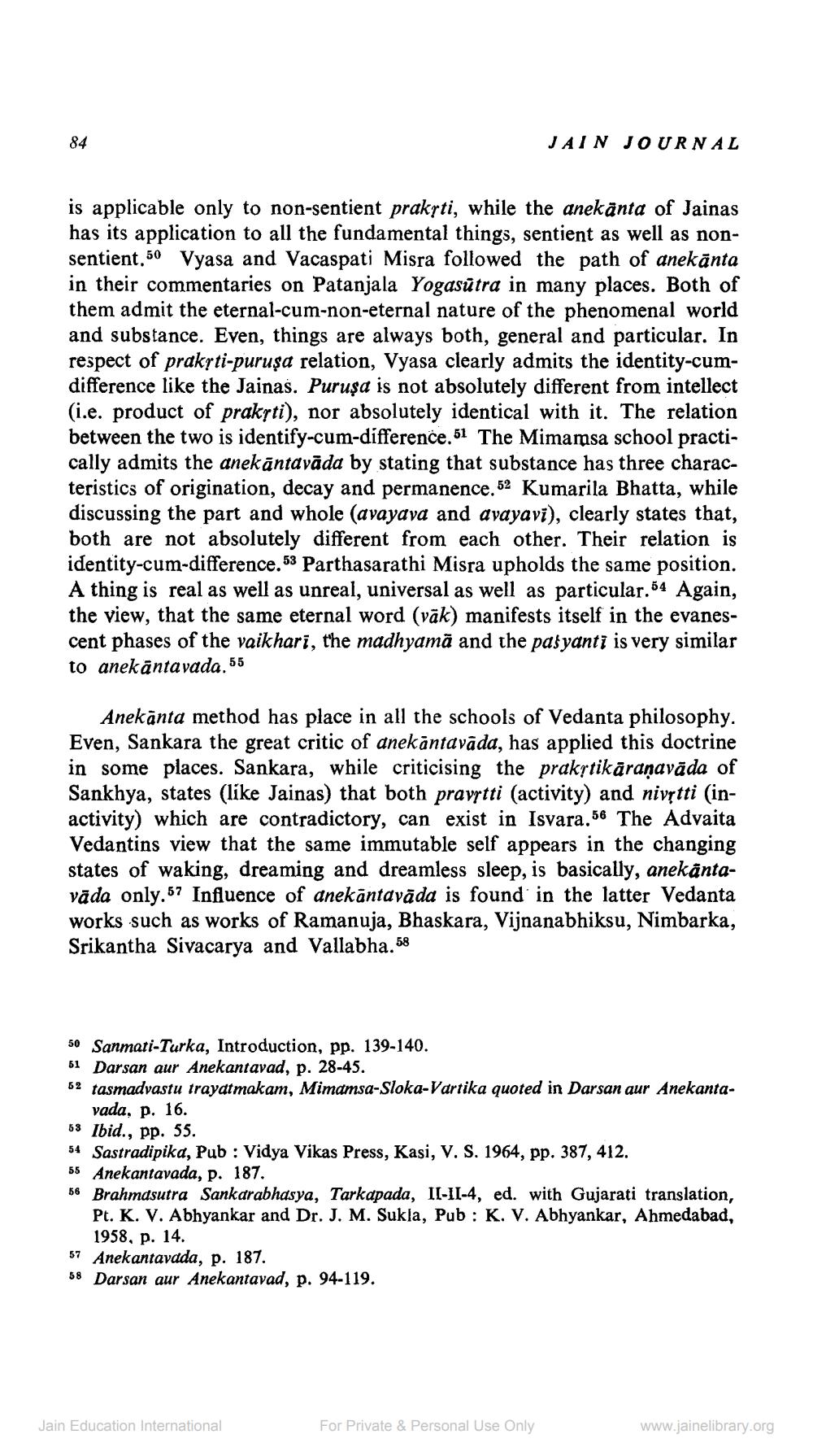________________
84
is applicable only to non-sentient prakṛti, while the anekanta of Jainas has its application to all the fundamental things, sentient as well as nonsentient,50 Vyasa and Vacaspati Misra followed the path of anekānta in their commentaries on Patanjala Yogasūtra in many places. Both of them admit the eternal-cum-non-eternal nature of the phenomenal world and substance. Even, things are always both, general and particular. In respect of prakrti-puruşa relation, Vyasa clearly admits the identity-cumdifference like the Jainas. Puruşa is not absolutely different from intellect (i.e. product of prakṛti), nor absolutely identical with it. The relation between the two is identify-cum-difference. 51 The Mimamsa school practically admits the anekāntavāda by stating that substance has three characteristics of origination, decay and permanence. 52 Kumarila Bhatta, while discussing the part and whole (avayava and avayavi), clearly states that, both are not absolutely different from each other. Their relation is identity-cum-difference. 53 Parthasarathi Misra upholds the same position. A thing is real as well as unreal, universal as well as particular. 54 Again, the view, that the same eternal word (väk) manifests itself in the evanescent phases of the vaikhari, the madhyama and the pasyanti is very similar to anekantavada. 55
JAIN JOURNAL
Anekanta method has place in all the schools of Vedanta philosophy. Even, Sankara the great critic of anekāntavāda, has applied this doctrine in some places. Sankara, while criticising the prakṛtikāraṇavāda of Sankhya, states (like Jainas) that both pravṛtti (activity) and nivṛtti (inactivity) which are contradictory, can exist in Isvara.56 The Advaita Vedantins view that the same immutable self appears in the changing states of waking, dreaming and dreamless sleep, is basically, anekantavāda only. 57 Influence of anekāntavāda is found in the latter Vedanta works such as works of Ramanuja, Bhaskara, Vijnanabhiksu, Nimbarka, Srikantha Sivacarya and Vallabha.58
50 Sanmati-Turka, Introduction, pp. 139-140.
51 Darsan aur Anekantavad, p. 28-45.
52 tasmadvastu trayatmakam, Mimamsa-Sloka-Vartika quoted in Darsan aur Anekantavada, p. 16.
53 Ibid., pp. 55.
54 Sastradipika, Pub: Vidya Vikas Press, Kasi, V. S. 1964, pp. 387, 412.
55 Anekantavada, p. 187.
56 Brahmasutra Sankarabhasya, Tarkapada, II-II-4, ed. with Gujarati translation, Pt. K. V. Abhyankar and Dr. J. M. Sukla, Pub: K. V. Abhyankar, Ahmedabad, 1958, p. 14.
57 Anekantavada, p. 187.
58 Darsan aur Anekantavad, p. 94-119.
Jain Education International
For Private & Personal Use Only
www.jainelibrary.org




